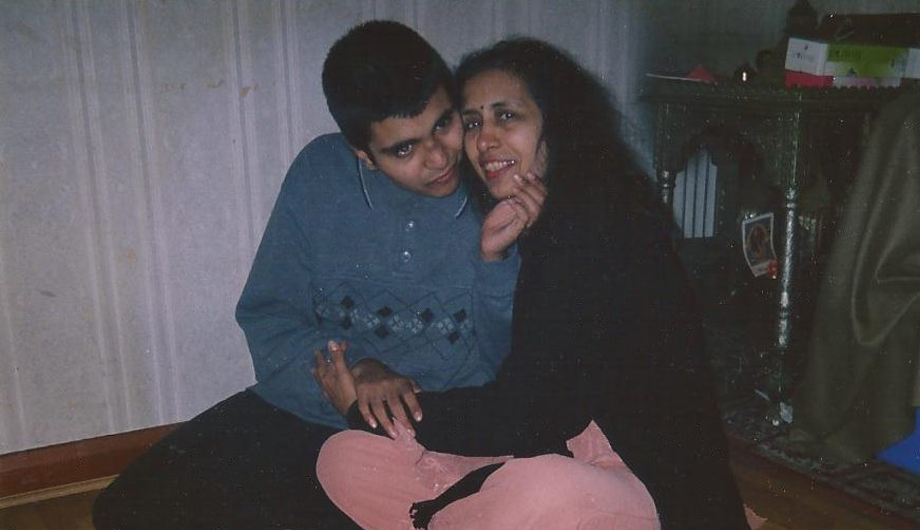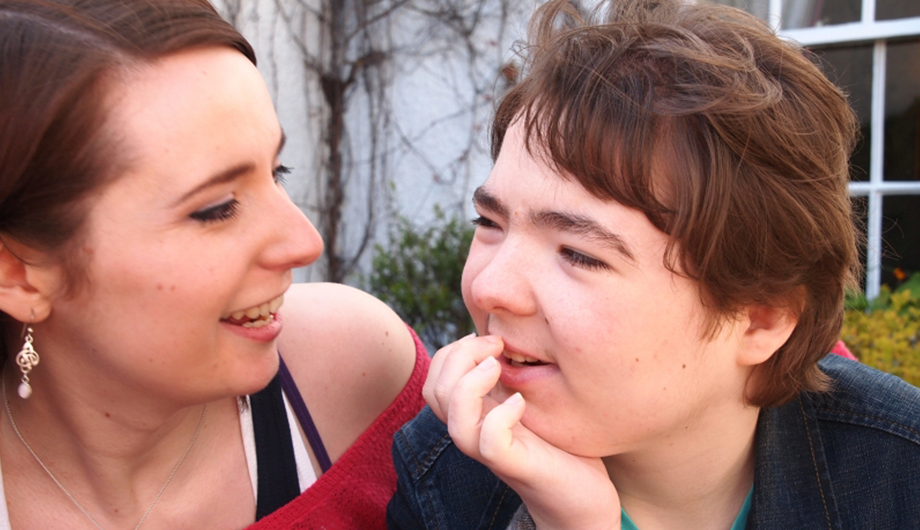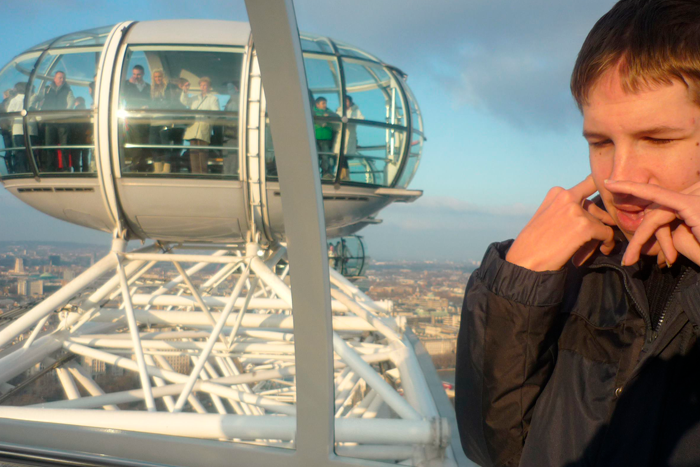
A sibling's perspective
Rekha's story about growing up and caring for her brother with severe learning disabilities.

Laura has a severe learning disability. She has a great happy life but her mother's greatest concern for Laura is her Pica behaviour.
Laura my lovely young daughter is now 28 and has a severe learning disability, complex communication disorder, and ongoing needs.
She has a rare syndrome, Wiedemann Steiner Syndrome, which is a multi-system syndrome so affects Laura in many ways. Laura lives at home with her mum and attends a day centre 5 days a week. She is a happy sociable young lady with a great sense of humour but can also be very mischievous when the mood takes her.
Laura can and will display behaviours described as challenging when her needs are not being understood or met. She will also exhibit self-injurious behaviours when frustrated or in pain. We have an excellent Communication Passport that gives Laura a voice and shows her for the unique individual that she is – it is also a great support and teaching tool for all the staff that support Laura, and can be downloaded and read at: www.mycommpass.com
My greatest concern for Laura is her Pica behaviour – it feels like we are walking on a tightrope at times. Laura will eat mostly materials; cushions, clothing, and bed clothes. I have to admit she has always loved chewing things and putting things in her mouth and I put that down to her need for sensory feed-back. We supply Laura with a chewy necklace that is attached to a weighted doll, but she will bite into most materials, like the cover of her i-pad if no one is watching her, so she is supervised at all times.
I guess the most dangerous time for Laura is during the night as she eats her bed clothes. We have cameras everywhere and we have bought special bed wear from prisons which are supposed to be pretty tough against tearing, but she has bitten through them. We spent over £1000 on special bed linen and durable materials, but nothing has survived.
To date Laura has had two life saving surgical procedures to remove materials from her stomach and it is a very stressful situation for Laura and her family as we constantly worry about this behaviour, especially as there is little known or literature on why it happens and what we can do to reduce it, all I can is highlight the trauma it causes.
What I have found is that many medical staff know nothing or very little about Pica and the danger and the trauma it can cause to the individuals life! When Laura has been admitted if I didn’t insist of the likelihood of Laura becoming obstructed and insisting how serious her condition was, she might not be here today. I think every hospital should have a check list on the dangers of Pica and the questions to ask, but most importantly if a parent or carers says they are worried please listen, they know their child or the person they are supporting, they will recognise the smallest change in the individual with Pica and this is an indication something is not right, waiting and not taking action could be fatal for that person.
Just prior to Christmas my daughter managed to get into the padding in her nappy (she had never done this before) I have a camera in her bedroom and heard her retching, I managed to dislodge the piece of padding from her mouth. We Now have her in new zip up the back sleep suits that cost £200 for four but at least she is safe from eating her nappy. I am constantly worried about what she will do next but she has a one to one so hopefully we can continue to keep this wonderful unique little lady of mine safe, she has a great happy life but Pica will always be a concern.
Kate—Laura’s mum
 The information about Communication Passports on this webpage is taken from Kate (Laura’s mum), Jenny (Laura’s sister) and Laura’s fantastic website. Go to www.mycommpass.com to find out more. You can download Laura’s Passport and make your own.
The information about Communication Passports on this webpage is taken from Kate (Laura’s mum), Jenny (Laura’s sister) and Laura’s fantastic website. Go to www.mycommpass.com to find out more. You can download Laura’s Passport and make your own.
Update April 2021! An amended version of the Cartoon Communication Passport (Adam’s) is now available on the website. The passport now covers sensory issues, Pica, and epilepsy, as well as many other situations and a Positive Behaviour Support Plan. Communication Passports allow people with severe learning disabilities to be supported in positive and active ways, enabling peoples’ voices to be heard. They are also good teaching tools for staff.

Rekha's story about growing up and caring for her brother with severe learning disabilities.

A breakthrough for a father and a son with challenging behaviour by going on the London Eye.